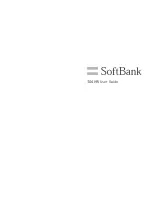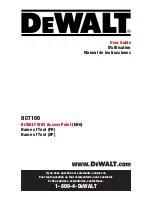
Regulatory Approval
FCC
EU R&TTE Directive 1995/5/EC
RS-210
ICES-003
VCCI
ARIB-STD33 & STD66
For more country-specific regulatory
approval, please contact your Meru
representative.
Certifications
Wi-Fi certified 802.11a/b/g/n
RoHS Compliant
WEEE Compliant
REACH Compliant
UL2043 Compliant (AP332e only)
Warranty
Limited lifetime warranty
Part Numbers
AP332i
Dual-radio, dual-band 802.11a/b/g/n
access point with six internal
omnidirectional antennas
AP332e
Dual-radio, dual-band 802.11a/b/g/n
access point with six external
omnidirectional antennas
For radio approvals, please contact
your local Meru representative for U.S.,
Canada, Japan, and Europe regulatory
codes.
QoS
WMM support
Dynamic WMM rate adaptation
Configurable QoS rules per user and application
OPERATING MODES
Centralized deployment mode
Distributed deployment mode
Remote VPN tunnel mode
Mesh mode
SECURITY
WEP, WPA-PSK, WPA-TKIP, WPA2-AES, 802.11i, 802.1X (EAP-TLS, EAP-
TTLS, PEAP, LEAP, EAP-FAST, EAP-SIM, EAP-AKA, and EAP-MD5)
802.1X and captive portal authentication against local database on the
controller, RADIUS, and Active Directory
RADIUS-assisted per-user and per-ESSID access control via MAC filtering
MANAGEMENT
Centrally managed by any Meru controller running System Director
Automatically discovers controllers and downloads configuration settings
for plug-and-play deployment
Upgrades and management using System Director/E(z)RF
®
Network Manager
Support for SNMP
WIRELESS SPECIFICATIONS
Radio Technologies
Dual-radio, dual-band 802.11n indoor access point; 3x3 MIMO with three
spatial streams
Supports both 20 MHz and 40 MHz channel widths
Supported radio technologies:
802.11b: Direct-sequence spread-spectrum (DSSS)
802.11a/g/n: Orthogonal frequency division multiplexing (OFDM)
802.11n: 3x3 MIMO with three spatial streams
Modulation
Supported modulation types
802.11b: BPSK, QPSK, CCK
802.11a/g/n: BPSK, QPSK, 16-QAM, 64-QAM
Frequency Bands
Supported frequency bands:
2.400 - 2.485 GHz
5.150 - 5.250 GHz
5.250 - 5.350 GHz
5.470 - 5.725 GHz
5.725 - 5.825 GHz
Country-specific restrictions apply; adjusted by controller upon approval
Platform supports Dynamic Frequency Selection (DFS)
Operating Channels
2.4 GHz channels: 1 to 11 for US & Canada, 1 to 13 for Europe, 1 to 14 for Japan
5 GHz Non-DFS channels: 36 to 48 and 149 to 165
5 GHz DFS channels: 52 to 64 and 100 to 140
Country-specific restrictions apply; adjusted by controller upon approval
Platform supports Dynamic Frequency Selection (DFS) for flexible 5 GHz
channel adoption
Data Rate
Data rates supported (Mbps):
802.11a/g: 6, 9, 12, 18, 24, 36, 48, 54
802.11b: 1, 2, 5.5, 11
802.11n: 6.5 to 450 (MCS0 to MCS23)
Transmit Power and Receive Sensitivity (External Antenna Model)
Maximum
Transmit Power
(EIRP)
Receive
Sensitivity at
Lowest Data Rate
IEEE 802.11b
23 dBm
-93 dBm
IEEE 802.11g
22 dBm
-83 dBm
IEEE 802.11a
20 dBm
-87 dBm
2.4GHz IEEE 802.11n (HT20)
23 dBm
-83 dBm
2.4GHz IEEE 802.11n (HT40)
20 dBm
-80 dBm
5GHz IEEE 802.11n (HT20)
20 dBm
-87 dBm
5GHz IEEE 802.11n (HT40)
19 dBm
-85 dBm
Transmit Power and Receive Sensitivity (External Antenna Model)
Maximum
Transmit Power
(EIRP)
Receive
Sensitivity at
Lowest Data Rate
IEEE 802.11b
22 dBm
-92 dBm
IEEE 802.11g
21 dBm
-82 dBm
IEEE 802.11a
19 dBm
-85 dBm
2.4GHz IEEE 802.11n (HT20)
22 dBm
-82 dBm
2.4GHz IEEE 802.11n (HT40)
19 dBm
-79 dBm
5GHz IEEE 802.11n (HT20)
19 dBm
-85 dBm
5GHz IEEE 802.11n (HT40)
18 dBm
-83 dBm
Configurable Transmission Power
Transmission power configurable in 1.0 dBm increments
Unused radios can be disabled via software for lower power consumption
PHYSICAL SPECIFICATIONS
Antenna
AP332i: Six integrated dual-band omnidirectional PIFA antennas with
typical antenna gain of 3 dBi for 2.4 GHz and 4 dBi for 5 GHz
AP332e: Six extended reverse polarity SMA connectors. Shipment comes with
six omnidirectional rubber duck antennas with typical gain of 2 dBi for 2.4
GHz and 3 dBi for 5 GHz band. Other external antenna options are available.
Power
802.3af PoE and 802.3at PoE Plus
12V external power adapter (sold separately)
Interfaces
Networks: Two 10/100/1000BASE-T Ethernet (RJ45), auto-sensing link
speed and MDI/MDX, with one 802.3af PoE or 802.3at PoE Plus
One USB 2.0 port (Type-A connector)
Indicators
One tri-color LED over facade for AP status
Additional LEDs for Ethernet activity over two RJ45 ports
Mounting
Wall or ceiling mount
Three mounting kits included with access point:
15/16” T-bar & wall-mount combo adapter (650-00232)
9/16” T-bar adapter (650-00233)
Flat-surface wall-mount bracket (used with 650-00232)
Dimensions
AP332i or AP332e (with mounting bracket):
7.09” x 7.09” x 2.67” (18.00 cm x 18.00 cm x 6.80 cm)
AP332e without facade:
6.30” x 6.30” x 2.06” (16.00 cm x16.00 cm x 5.22 cm)
Weight
AP332i (with mounting bracket): 2.33 lb (1.06 kg)
AP332e (with mounting bracket): 1 .93 lb (0.88 kg)
AP332e without facade: 1.5 lb (0.68 kg)
Environmental
Operating temperature: 32˚F to 122˚F (0˚C to 50˚C)
Operating humidity: 5–95% (non-condensing)
Storage temperature: -40˚F to 185˚F (-40˚C to 70˚C) ambient
Storage humidity: 5–95% (non-condensing)
AP332
TECHNICAL SPECIFICATIONS





















